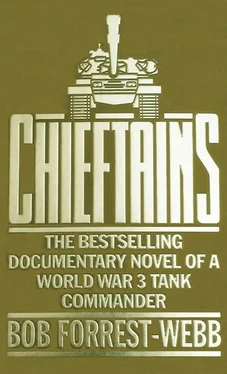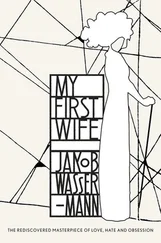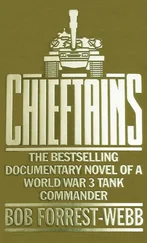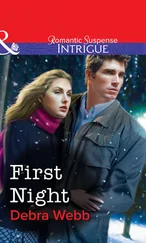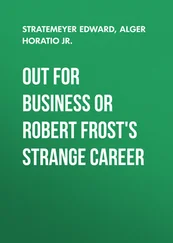He heard the voice of the GRU captain, but didn’t understand the words. The light had gone, his feet dragged across rough ground. Cautiously he allowed his mind to return; it was reluctant.
He tried to shake himself free of the hands, attempting to support himself, but there was little co-ordination yet in his movements; it was returning slowly. There were voices beside him, unintelligible.
He began to recognize his surroundings, the woods. He was stumbling through beds of autumn leaves, over fallen branches, trunks. He could not distinguish between the night sky and the dark outlines of the trees.
They let him drop. He felt the damp ground beneath him, and pushed himself on to his hands and knees. He saw the flash of orange fire from the muzzle of a gun a meter away; a deafening burst of sound as he fell sideways, rolling, tumbling down a steep incline.
He knew they had shot him; he was dying. He lay on his back, and he could see the stars above him. He recognized the Great Bear; found the beacon of infinite north, the Pole Star. He wondered how long he would be able to watch it before his senses faded. And what then? Perhaps he would still be able to see the stars. Perhaps, after all, something followed death. It would have been better to have died somewhere else. Beside a good river; in the warmth of a summer afternoon. There was no romance about death in wartime; that was the myth old men told the young, a lie to feed violence… religion… was there even a God? It was all very convenient, a God to control the people while they were alive, blackmail them into submission with threats of godly vengeance… provide them with an after-life to remove the fear of death, and what did you have then? A disciplined army who would fight.
If there is a God, thought Studley, if you are up there and can hear me, just remember please that all I want is Jane. Not now, but in time.
Max would want her, too. How would a God solve that problem?
There was a dark shape beside him, the fallen trunk of some great tree. He could smell it rotting; the fungi. We’ll rot together, he decided, here in this hollow in the ground. The beetles and the worms will share us. You didn’t die peacefully either, tree, but you probably took longer. Perhaps you took fifty years to die; more than my lifetime.
He closed his eyes for a time, and tried to conjure warmth; it wouldn’t come, nor would the images of Jane. It was almost as though he had expended them while he was resisting the torture. There was satisfaction in that… in the endurance. He had won, and the GRU captain had lost. It had been a small individual war between them, and the knowledge the Russian would have to live with defeat pleased him.
The Great Bear had moved a little, tilted slightly towards the heads of the pines. Studley wriggled his hand sideways until he felt the soft bark of the dead tree. It took him several seconds to realize he had done so. He clenched the other hand and felt it grasp moist earth.
Experimentally, he lifted his head.
No one survived a close-range burst from an AKS-74, and that was what he remembered the guards carrying. He thought he had felt the blow of the bullets, their impact throwing him sideways down the steep bank through the undergrowth until he pitched against the tree trunk. Soviet 5.45mm bullets had the reputation of going in small, but doing a lot of damage on their way out. If he attempted to move too much perhaps he would burst apart, spilling his blood and entrails beneath him. He cautiously flexed a leg, and the pain from his calf wound was startling, seeming to awaken every nerve in his body.
He collected together his memories of the past hours; his capture, interrogation, torture. He set them in order. Miraculously, he was still alive. Alive? Why? How? He tried to understand, and realization brought a strange bitterness. He had meant nothing to the soldiers who had been ordered to shoot him; an insect to be squashed. They hadn’t even bothered to make sure they had done the job properly. He was of no importance, simply rubbish for disposal.
He pushed himself upright and into a sitting position, his back against the fallen trunk. The exertion made him dizzy and sick. Carefully, he examined his face with his fingertips, by touch. It was unrecognizable, swollen and tender. His teeth were broken stumps, and his lips torn, caked with congealed Mood. He could not open his jaw. The cracked ribs in his side ached as he breathed, a reminder of the blow from the guard’s rifle butt.
His leg was throbbing, the rough bandaging over the wound seeping blood. He tightened it as best he could in the darkness. There was some sort of injury to his upper back; he couldn’t tell what, it was painful but it didn’t prevent him moving his arms.
They had wanted him to give them the code, and he had refused. They had tortured him and then tried to kill him, and he had survived. The thoughts strengthened him. He would get away; he would drag himself deeper into the woods, find somewhere he could hide out during the daylight, clean and examine his wounds. When he was stronger, he would work his way south-west and attempt to find a way through the lies, perhaps into Switzerland. If not, he would seek out one of the guerrilla groups that would certainly have been formed. Somehow, eventually, he would get back to Britain and Jane.
He thought of the GRU captain; the man’s angular face becoming more twisted by fury as Studley had remained silent. He would torture others who came into his hands, For Studley, the de would change at midnight, but for the GRU captain there would always be a new daily code to be broken along with the will and bodies of his prisoners.
Studley remembered his own words to his officers less than a week previously. ‘We will be outnumbered… perhaps by as many as five to one… a lot of us won’t survive. But we can hold them, if we make it too costly for them to win. Fight like hell… to the last shell or bullet or man. Never surrender… take out as many of them as you can. It’ll be bad, bloody bad, but it all depends on us. It’s our job to stop them’
Stop them. That was what it was all about. Fighting until you couldn’t fight anymore. Then what the hell was he doing smugly assuming he had done enough? Just because he had been wounded and got himself battered didn’t relieve him of any responsibility. Just because he’d managed to survive for a few hours didn’t permit him to believe his war was ended. What of the other men? His men. They would still be fighting somewhere… wounded or not, they’d damn well fight on. So must he.
He had crawled the steep slope above the fallen tree, to the point where the guard had shot at him. His movement had been slow and painful, but it was easier to crawl than attempt to walk at the moment.
He could hear the sound of an engine, a generator in the distance through the trees, and worked his way towards it. The sky was brighter, the moon rising beyond the tall horizon of the woodland. A few feet to his left leaves rustled; he froze, then relaxed as a terrified rodent scurried away through the undergrowth. There were other hunters in the forest beside himself.
He could smell diesel fuel, exhaust fumes, and the throbbing of the motor was louder. There were men beyond the clumps of bracken and bramble that skirted the clearing. He could see the head and shoulders of a guard patrolling the edge of the woods. He knew there must be others concealed throughout the forest.
It took a long time to inch his way forward until at least be had a clear view of the encampment. The clearing itself was almost empty, but there were vehicles parked close to the trees on the side farthest away from him, and bivouacs beside them. He recognized the radio vehicle, with its dish aerials, seventy meters ahead. A few meters from it was the BMP in which he had been imprisoned before his interrogation; the GRU officer’s truck, the BTR command post, was on the left of the clearing, isolated.
Читать дальше
